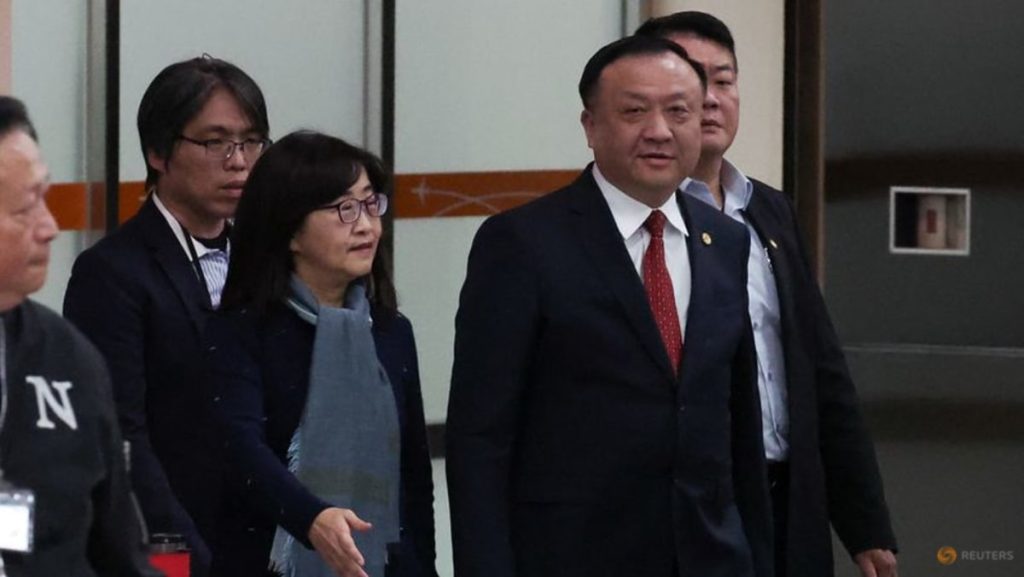The political landscape between Taiwan and China remains fraught with tension, underscored by the recent visit of a Shanghai delegation to Taipei for the annual Twin-City Forum. Taipei Mayor Chiang Wan-an, a member of the Kuomintang (KMT) party, has championed such cross-strait exchanges, particularly during periods of heightened friction. The KMT, while historically advocating closer ties with China, rejects accusations of being pro-Beijing. Chiang’s participation in this year’s forum follows his attendance at the same event in Shanghai last year, signifying the importance he places on maintaining communication channels. This year’s forum carries added significance due to the backdrop of increased military activity and political posturing from both sides.
The Taiwanese government’s decision to partially restrict the Shanghai delegation’s participation reflects the delicate balance it seeks to maintain. While endorsing the forum as a platform for dialogue, the government cited the escalating military threats from China as justification for barring some delegation members. This calculated move underscores Taiwan’s commitment to engaging with China while simultaneously asserting its sovereignty and security concerns. The selective approval process highlights the complex interplay between the desire for communication and the imperative to safeguard national interests amidst growing pressure from Beijing.
Adding further complexity to the situation is the recent detention of three Taiwanese religious figures in China, accused of involvement in an underground cult. Taiwan’s government has demanded their immediate release, injecting another layer of friction into the already strained cross-strait relationship. This incident, occurring just days before the Twin-City Forum, underscores the broader human rights concerns and the challenges of navigating legal and political differences between the two sides. The timing of the arrests inevitably casts a shadow over the forum and reinforces the perception of China’s assertive stance towards Taiwan.
Taiwan’s Mainland Affairs Council, the government body responsible for cross-strait policy, emphasized that permitting the forum to proceed, despite the ongoing tensions and the detention of the religious group members, demonstrates Taiwan’s commitment to dialogue and peaceful resolution. This stance underscores the government’s efforts to portray itself as a responsible actor seeking to maintain stability in the region, even in the face of provocation. By framing the forum as a gesture of goodwill, Taiwan aims to contrast its approach with what it perceives as China’s increasingly aggressive posture.
However, meaningful engagement remains elusive as Beijing continues to rebuff calls for dialogue with Taiwanese President Lai Ching-te, labeling him a “separatist” due to his stance on Taiwan’s self-determination. This refusal to engage directly with the democratically elected leader of Taiwan further complicates the situation and hinders progress towards a more constructive relationship. China’s insistence on labeling Lai a separatist reflects its unwavering commitment to the “One China” principle and its refusal to acknowledge Taiwan’s pursuit of greater autonomy.
The interplay of these events – the Twin-City Forum, the restricted delegation, the detention of Taiwanese citizens, and the refusal to engage with President Lai – highlights the precarious state of cross-strait relations. While initiatives like the Twin-City Forum offer a platform for dialogue and potential de-escalation, they are overshadowed by the deeper political and ideological divisions. The ongoing tensions underscore the challenge of finding a sustainable path forward that respects the interests and concerns of both sides. The future of cross-strait relations remains uncertain, with the need for continued communication and mutual understanding more critical than ever.

